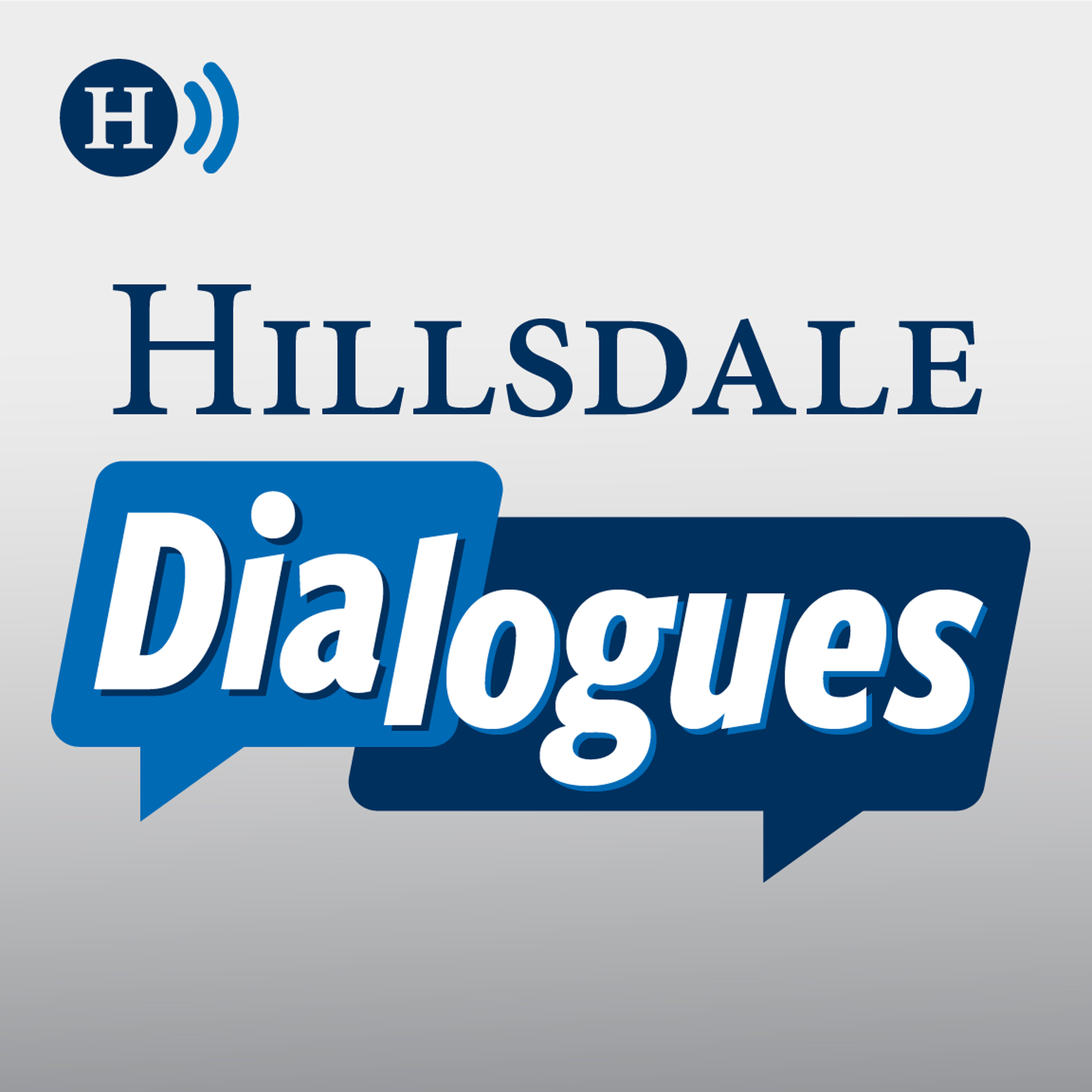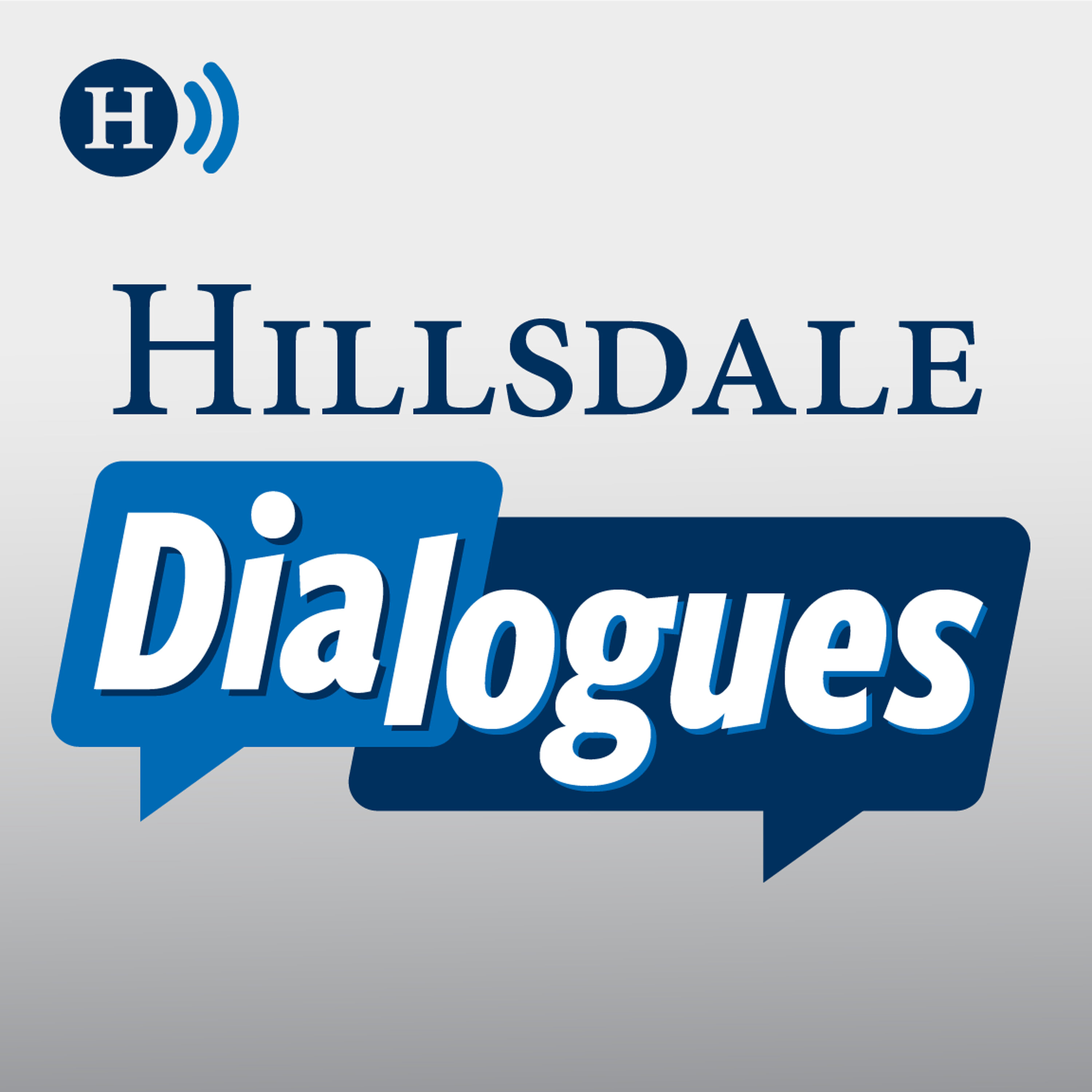Churchill's The World Crisis, Part Twenty Four
Digest
Hugh Hewitt and Hillsdale College President Larry Arndt continue their discussion of Winston Churchill's "The World Crisis," focusing on the events of 1917. They highlight the significance of three key events: the German declaration of unlimited U-boat warfare, the entry of the United States into the war, and the Russian Revolution. Arndt emphasizes Churchill's belief in destiny and his view that God intervened in the war, albeit rarely. They also discuss the importance of infantry in modern warfare, drawing parallels to the current conflict in Ukraine. Arndt highlights the lessons learned from trench warfare, particularly the need for mechanical means to overcome enemy defenses. The conversation then shifts to the role of America in World War I, with Arndt noting Churchill's admiration for the American political system and its ability to produce leaders unburdened by political scars. They also discuss the importance of a strong and united government, as exemplified by Churchill's leadership during World War II. The conversation concludes with a discussion of the current political climate in the United States, with Arndt expressing concern about the direction of the country and the need for a return to fundamental principles of freedom and strength. He also emphasizes the importance of Hillsdale College in providing a counterbalance to the prevailing liberal ideology in higher education.
Outlines

The Weighty Events of 1917
This Chapter begins with Hugh Hewitt and Larry Arndt discussing the significance of 1917 in World War I, marked by three major events: the German declaration of unlimited U-boat warfare, the entry of the United States into the war, and the Russian Revolution. Arndt highlights Churchill's view that these events were orchestrated by destiny, suggesting a divine intervention in the course of history. They also discuss the importance of infantry in modern warfare, drawing parallels to the current conflict in Ukraine.

The American Character and its Influence on Warfare
This Chapter delves into the unique character of the American people and its impact on warfare. Arndt emphasizes the absence of aristocracy in America and the prevalence of the frontier spirit, where hard work and independence were paramount. He argues that this spirit fostered a free economy and a culture of competition and cooperation, which in turn shaped the American military. Arndt contrasts this with the changing demographics of the American military after Vietnam, where the traditional frontier spirit was replaced by a more professionalized force.

Churchill's Views on Russia and the Russian Revolution
This Chapter focuses on Churchill's perspective on Russia and the Russian Revolution. Arndt acknowledges Russia's initial contributions to the Allied cause in World War I but highlights Churchill's view that Russia was ultimately a malignant force. They discuss the Tsar's shortcomings as a ruler and the role of German intelligence in fomenting the revolution. Arndt also explores the complexities of the Russian Revolution, noting that some of Russia's finest leaders, like General Brüsselov, initially opposed the revolution but later joined the Bolsheviks.

Leadership, Accountability, and the Current Political Landscape
This Chapter concludes the discussion with reflections on leadership, accountability, and the current political landscape. Arndt emphasizes Churchill's view that leaders are ultimately responsible for the outcomes of their actions, regardless of the circumstances. He also discusses the challenges facing Hillsdale College as a conservative institution in a rapidly changing world. The conversation concludes with a comparison of the presidencies of Donald Trump and Joe Biden, with Arndt expressing his preference for Trump's approach to governing.
Keywords
Winston Churchill
Sir Winston Leonard Spencer-Churchill (1874-1965) was a British statesman, army officer, and writer. He served as Prime Minister of the United Kingdom during World War II and is widely regarded as one of the greatest wartime leaders of the 20th century. He was known for his inspiring speeches, his unwavering determination, and his strategic brilliance. He was also a prolific writer, authoring numerous books, including "The World Crisis," a multi-volume account of World War I.
The World Crisis
A multi-volume work by Winston Churchill, published between 1923 and 1931, that chronicles the events of World War I. The book is a detailed and insightful account of the war, covering its origins, the major battles, and the political and social consequences. It is considered a classic work of military history and provides valuable insights into the strategic thinking of one of the 20th century's most influential leaders.
World War I
A global war originating in Europe that lasted from 1914 to 1918. It involved the Central Powers (Germany, Austria-Hungary, the Ottoman Empire, and Bulgaria) against the Allied Powers (France, Russia, the United Kingdom, Italy, Japan, and the United States). The war was characterized by unprecedented levels of violence, technological advancements in warfare, and a profound impact on the global political landscape. It led to the collapse of empires, the rise of new ideologies, and the creation of the League of Nations.
Russian Revolution
A series of revolutions that took place in Russia in 1917, culminating in the overthrow of the Tsarist regime and the establishment of the Soviet Union. The revolution was sparked by a combination of factors, including Russia's involvement in World War I, economic hardship, and social unrest. It led to the rise of Vladimir Lenin and the Bolshevik Party, who implemented a communist system of government.
Hillsdale College
A private, liberal arts college located in Hillsdale, Michigan. It is known for its commitment to classical liberal education, its strong emphasis on American history and political thought, and its conservative perspective on social and political issues. Hillsdale College has a national reputation for its academic excellence and its influence on American public discourse.
Donald Trump
The 45th President of the United States (2017-2021). Trump is a controversial figure known for his populist rhetoric, his business acumen, and his unconventional approach to politics. He is a member of the Republican Party and has been a prominent figure in American politics for decades. Trump's presidency was marked by significant political and social divisions, as well as a number of policy changes, including tax cuts, deregulation, and a more assertive foreign policy.
Joe Biden
The 46th President of the United States (2021-present). Biden is a member of the Democratic Party and has a long history of public service, having served as a U.S. Senator from Delaware for 36 years and as Vice President under Barack Obama. Biden's presidency has been marked by a focus on addressing the COVID-19 pandemic, climate change, and economic inequality.
Infantry
The branch of an army that fights on foot. Infantry soldiers are typically armed with rifles, machine guns, and other small arms. They are often considered the backbone of an army, as they are responsible for close-quarters combat and for securing and holding ground. Infantry has been a crucial element of warfare throughout history, and its importance has been reaffirmed in recent conflicts, such as the wars in Iraq and Afghanistan.
Trench Warfare
A form of warfare that was widely used during World War I. It involved the construction of elaborate systems of trenches, dugouts, and fortifications, which were used to protect soldiers from enemy fire. Trench warfare was characterized by its brutal and bloody nature, as soldiers were often trapped in confined spaces and subjected to constant shelling and machine-gun fire. It was a major factor in the stalemate that characterized the war on the Western Front.
Destiny
The predetermined course of events, often seen as a force beyond human control. The concept of destiny has been a central theme in many cultures and religions throughout history. It can be viewed as a source of comfort or fear, depending on one's beliefs about the nature of fate. In the context of the podcast, Churchill's belief in destiny suggests that he saw the events of World War I as part of a larger, predetermined plan.
Q&A
What were the three major events that marked 1917 in World War I, according to Churchill?
The three major events were the German declaration of unlimited U-boat warfare, the entry of the United States into the war, and the Russian Revolution.
What is Churchill's view on the role of destiny in shaping events?
Churchill believed that God intervened in the war, albeit rarely, and that these events were part of a larger, predetermined plan.
What lessons can be learned from trench warfare, according to Arndt?
Arndt emphasizes the need for mechanical means to overcome enemy defenses, as infantry alone is often insufficient in modern warfare.
What does Churchill admire about the American political system?
Churchill admires the American system's ability to produce leaders who are not burdened by political scars and who are more likely to act in the best interests of the country.
What is Arndt's view on the current political climate in the United States?
Arndt expresses concern about the direction of the country and the need for a return to fundamental principles of freedom and strength.
What is the importance of Hillsdale College in the current political landscape?
Arndt sees Hillsdale College as a vital counterbalance to the prevailing liberal ideology in higher education, providing a conservative perspective on social and political issues.
How does Arndt compare the presidencies of Donald Trump and Joe Biden?
Arndt expresses his preference for Trump's approach to governing, suggesting that Trump is more aligned with the principles of freedom and strength that he believes are essential for the country.
What is the significance of the large crowds that attended Trump's rallies during his legal battles?
Arndt sees these crowds as a sign that there is a significant segment of the population that is yearning for a return to the values of freedom and strength that they believe were lost under previous administrations.
What is Arndt's view on the role of leadership in times of crisis?
Arndt emphasizes Churchill's view that leaders are ultimately responsible for the outcomes of their actions, regardless of the circumstances.
What is the importance of Hillsdale College in the current political landscape?
Arndt sees Hillsdale College as a vital counterbalance to the prevailing liberal ideology in higher education, providing a conservative perspective on social and political issues.
Show Notes
Dr. Larry P. Arnn, President of Hillsdale College, joins Hugh Hewitt on the Hillsdale Dialogues for his series on "Churchill the Writer." In this episode, Dr. Arnn and Hugh continue their discussion of The World Crisis, Vol. 3, which covers 1916-1918.
Release date: 31 May 2024
See omnystudio.com/listener for privacy information.









